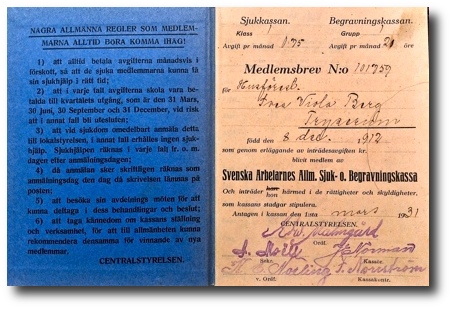My grandmother liked to talk about death a lot. The turning of time seemed to be very much present in her life, and in her relationship with everybody, including her grandkids. One of her favorite topics, as it related to death, was the inheritance.
When I was about ten years old, I fell in love with a brown, leather coin purse of hers. I played with it, opened and closed it, put it in my pocket, pulled it back out again, feeling very cool. My Grandma watched me play with it, and she asked me if I liked it. I did, I told her.
“Risto, I’ll give that to you. As an advance inheritance. So when I die, you can tell the others that I gave that to you, and that it’s yours,” she told me.

That scared me a little bit, but not enough for me not to take the purse.
She also liked to tell a story about herself going back to work the day after I was born. How she walked in an hunched up, with a cane, and a scarf around her head, rambling in a high-pitched voice, like a really old woman, even though she was just in her early forties.
I had made her old just by being born. Happy, but old.
And I, of course, always thought she was old. After all, there she stood in the kitchen wearing old lady clothes, or sat by the kitchen table reading the paper wearing her old lady glasses. She wrote small notes and did the crossword puzzle in her old person’s handwriting, which seemed almost illegible to me, bordering on being a secret code.
Same with my other grandmother, of course, my paternal one. The one who always seemed even older, and not simply because she didn’t learn to swim at 50 or get her driver’s license at 60, like my maternal grandmother, but simply because she was.
Whenever I read a note that they’d written, or a postcard, a birthday card they’d sent to us, I could tell the sender by the handwriting. I also imagined them sitting at the kitchen table, wearing their big, thick-framed glasses, and for hours, writing that card with their shaking hands.
In that 19th century style.
Now, when I was in school, we had to learn how to write in cursive with ink. Real ink. No quills, though. And while my handwriting has always been “personal”, which is the nicer word my third-grade teacher used instead of “illegible”, I’ve also always liked my own handwriting. I think it looks nice.
The other day, I sat outside the kids’ school, in the sun, writing about my grandmother in my Moleskine, like a writer taking notes. I wrote about a brown coin purse, and how she learned to drive when she was 60, and, well, the things you just read. And when I stopped writing, I leaned back and admired my work.
My handwriting is still as nice as it’s always been, I said to myself, out loud. And right then, right there, on that rock just outside the school, I realized that Son’s handwriting looks a lot different from mine. The entire style is different: the way he’s been taught to make the t’s, and the s’s, and how his capital H doesn’t have the nice loops that mine has.
My handwriting has become antiquated. It’s still nice, but it’s old school. His is 21st century.
I think that also means that I can stop telling the joke about there being a store that sends the official old man’s uniform package – blue shirt, brown pants – to men when it’s time to switch to that.
I think I’ll be fine wearing what I’m wearing right now.
